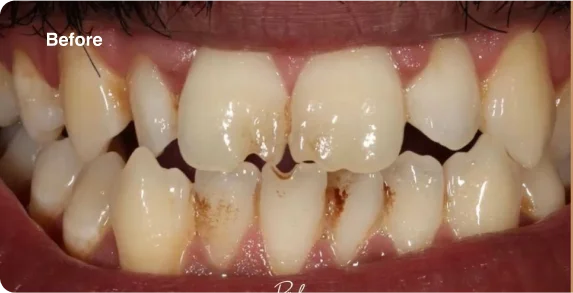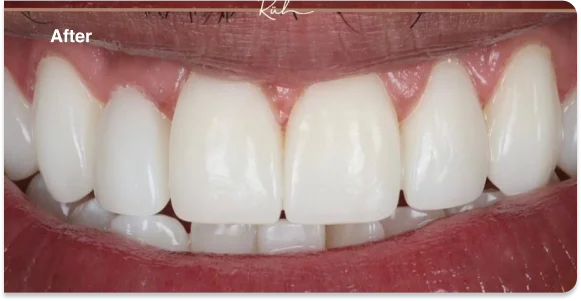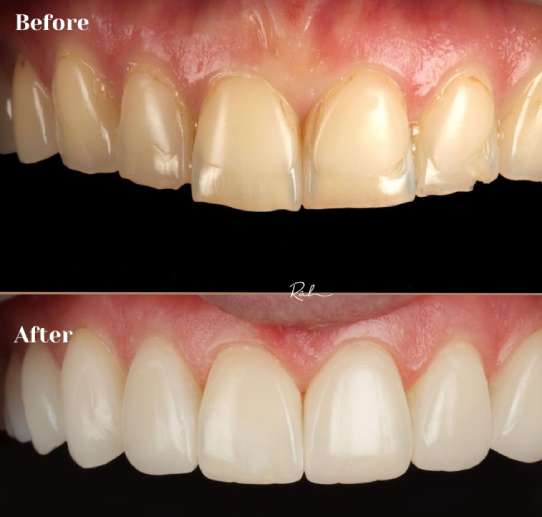There are several treatments available, depending on the severity of the chipping:
Composite Bonding: A tooth-colored resin is applied to the chipped area, shaped, and hardened with a special light. This is ideal for minor chips and offers a quick, cost-effective solution which will match the colour, shape and size of the original tooth
Porcelain Veneers: Thin, custom-made shells of porcelain are bonded to the front surface of the teeth. Veneers are more durable and stain-resistant compared to bonding, and they provide a natural appearance.
Invisalign: While Invisalign is primarily used for straightening teeth, it can also help align teeth properly, reducing the risk of future chipping of teeth. If the chip is due to misalignment, Invisalign might be recommended as part of the treatment plan.
Dental Crowns: For larger chips or when the tooth is significantly weakened, a crown may be necessary. The crown covers the entire tooth, restoring its shape, strength, and appearance.












